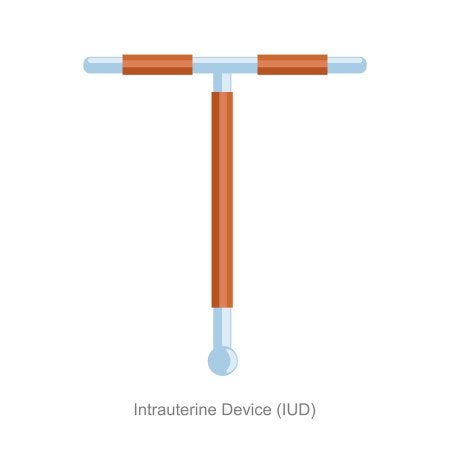-
Here’s How Gynecologists Cope with Cramps
During your period, your uterine muscles contract in order to shed the lining of the uterus. This causes the pain of menstrual cramps. Some women barely notice them, while others feel incapacitated by them. Since you shouldn’t have to suffer through the pain, and because severe menstrual pain may indicate a medical problem, you should make an appointment with your gynecologist. The doctor may recommend hormonal birth control, if you aren’t already using it. Hormonal birth control pills lessen cramping by thinning the uterine lining, which means there’s less of it to shed.

If hormonal birth control doesn’t do enough for you, or you’d rather avoid it, try heat therapy. Gynecologists recommend keeping a heating pad nearby during that time of the month. Additionally, avoid salty foods, since dehydration can worsen the cramping. You could also try taking an over-the-counter nonsteroidal anti-inflammatory drug (NSAID) shortly before you usually get cramps.
Washington Surgi-Clinic is a trusted provider of gynecology services for women in Washington, D.C. and the surrounding areas. You can request an appointment by calling (202) 659-9403.
-
Hear Why April Chose Pregnancy Termination
Women often find that the decision to have an abortion is a gut-wrenching one, especially when they desperately wanted to become mothers. When you watch the accompanying video, you’ll hear about April’s experience with abortion. She and her husband went through many cycles of fertility treatments to become pregnant.
Initially, their son tested negative for common birth defects. At 18 weeks, an anatomy scan revealed a lethal diagnosis of skeletal dysplasia. It would prevent him from living longer than a few minutes. Had April been forced to carry her baby to term, she would have experienced the agony of holding her son as he died, knowing that he was in pain. April decided to share her story because she believes women should have the right to control their own reproduction and because she wants to break down the stereotypes about pregnancy termination.
Washington Surgi-Clinic is a warm, welcoming place where women can receive thoughtful and personalized guidance . Call (202) 659-9403 to request a consult for pregnancy termination in Washington, D.C.
-
Non-Hormonal Birth Control Options
Most birth control methods rely on hormones to trigger changes in the body that inhibit the fertilization of an egg or the implantation of a fertilized egg. But some women have health issues or concerns that discourage them from choosing hormonal birth control. Talk to your gynecologist about your options. He or she can recommend some appropriate choices, based on your health history, preferences, and lifestyle.
Condom
Condoms are the barrier method of choice for many couples, and gynecologists recommend them because they protect individuals from sexually transmitted diseases (STDs) as well as unintended pregnancies. Even when couples do rely on hormonal birth control, doctors recommend using a condom too. The downside is that condoms aren’t 100% effective. Tiny rips in the latex can allow sperm transfer. Condoms can also interfere with sexual spontaneity, and if condoms aren’t readily available, couples may engage in unprotected sex.

Copper IUD
Another non-hormonal option for women is the copper intrauterine device (IUD). This is a tiny device that your gynecologist can insert into your uterus. It can stay there for up to 10 years, at which time you may choose to replace it or use a different birth control method. The copper IUD isn’t right for every woman, but for many, it’s a convenient, safe choice that doesn’t raise the risk of hormone-related side effects, like blood clots. Less than 1% of women who use this particular IUD will conceive within the first year of use , according to The Mayo Clinic. If this occurs, there is a high risk of ectopic pregnancy. However, the overall risk of ectopic pregnancy with the copper IUD is less compared to the risk for women who don’t use birth control.
Diaphragm
The diaphragm is another barrier method. A gynecologist must prescribe and fit it, and it should be used with spermicide. This silicone cup needs to remain in place for six hours after sex, but it cannot be left in place longer than 24 hours. Some women report vaginal irritation with it. The diaphragm doesn’t protect couples from STDs, and it has a relatively high failure rate.
The gynecologists at Washington Surgi-Clinic guide women in making informed decisions regarding birth control methods. Call (202) 659-9403 to schedule an appointment. We also offer STD testing and morning-after pills in Washington, D.C.
-
Nutrition and Food Safety Facts for Recently Diagnosed HIV Patients
Gynecologists recommend routine HIV testing for women and men, as early detection facilitates early treatment. Living with HIV isn’t easy, but thanks to medical advances, life with this disease can be better and longer than ever. Taking your medications as prescribed is just one component of your treatment plan. Your immune system needs you to follow a healthy diet, and to take precautions to prevent foodborne illnesses.

Nutrition-Related Issues
Talk to your doctor about any problems you’re having with your meal plan. Several challenges may affect HIV patients, including related infections that inhibit normal eating and swallowing. Metabolic changes can trigger weight gain or loss. Additionally, HIV medicine may cause side effects like nausea, vomiting, and diarrhea. All of these issues can make it more difficult for you to eat well, but your doctor can help you. Don’t delay scheduling an appointment if you experience these complications, especially if you begin to unintentionally lose weight.
Important Nutrients
Patients with HIV need the same nutrients that everyone else does for good health. However, since you may have problems eating enough due to HIV-related complications, it’s even more important that the food you do eat is nutrient-dense. Consider talking with a registered dietician to make sure your meal plan includes sufficient amounts of:
- Protein
- Healthy fats
- Vitamins and minerals
- Complex carbohydrates
Remember to drink plenty of water throughout each day.
Food Safety Precautions
HIV patients are highly susceptible to contracting infections, since HIV attacks the immune system. In other words, you’re more vulnerable to foodborne illnesses than the average person without HIV. Protect yourself by taking the following precautions.
- Never eat raw or undercooked foods (including raw cookie dough and homemade mayonnaise)
- Avoid unpasteurized dairy products
- Cook all meat, poultry, and seafood to its safe internal temperature
- Avoid raw sprouts
- Refrigerate perishable foods promptly
- Wash hands before and after preparing food
- Keep raw foods separate from cooked foods
- Use separate cutting boards for raw meat products and all other ingredients
Remember to follow basic precautions when dining out and socializing. Don’t be shy about asking whether meat is well-done or if the milk is pasteurized. When traveling, consume bottled water.
You can receive confidential HIV testing in Washington, D.C. if there’s a possibility that you’re at risk of this infection. Washington Surgi-Clinic is committed to maintaining the strict confidentiality of each of our valued patients. Call (202) 659-9403.
Recent Posts
Popular Posts
categories
- Uncategorized
- STD
- Washington Surgi-Clinic
- Abortion
- Pregnancy
- Pap Smears
- Birth Control Options
- HPV
- Gynecologist
- Pregnancy Test
- Abortion Safety
- IUD
- Pregnancy Termination
- First Trimister
- Cervical Cancer
- Morning After Pill
- Birth Control Pills
- Chlamydia
- Birth Control Shot
- Gonorrhea
- STD Testing
- Birth Control Implant
- Pelvic Pain
- Birth Control Patch
- HIV
- HPV Vaccine
